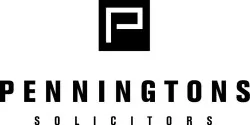The recent decision of the High Court in Wilson vs (1) Yahoo! UK Limited and (2) Overture Services Limited [2008] EWHC 361 (Ch) has shed some light on the issue of whether key word marketing is trade mark infringement.
Key word marketing is a form of online advertising by which an advertiser sponsors a term or word, so that when an internet user types that word into a search engine, a link will appear under a "sponsored links" section of the search page. If, as in the case of Yahoo!, a search engine sells a word which has been registered as a trade mark to an advertiser as a key word, is this trade mark infringement? The High Court has held that this is not trade mark infringement on the part of the search engine provider.
Mr. Wilson owned a Community Trade Mark Registration for the brand name "Mr. Spicy" (the "trade mark"). Upon searching Yahoo's search engine using the trade mark, Mr. Wilson discovered that the results generated by his search included various links to Sainsbury's website as well as to Pricegrabber's (who had both sponsored the term "Spicy"), on the results page under the heading "Sponsor Results". Mr. Wilson brought an action for trade mark infringement against Yahoo! and its technology provider Overture Services Limited (a subsidiary of Yahoo!), (together "Yahoo").
In a summary judgment hearing, the court dismissed Mr. Wilson's arguments on the basis that the trade mark was not being used by Yahoo but rather by the Internet users who entered the phrase "Mr. Spicy" as a search query in Yahoo's search engine. The court also held that even if the search engine's response to the words entered by the Internet browser amounted to use by Yahoo, it was not use of the term "Mr. Spicy" but rather the English word "spicy".
This decision does not follow the approach taken in France, where Google was banned from showing any sponsored links or advertisements any time the words "Meridien" or "Le Meridien" were entered, whether or not the word "hotel" was entered as well. Instead, this decision appears to follow the US approach, that the sale by Google of words which had been registered as trade marks by the insurance company Geico as "key words" or "ad words" was not unlawful.
This decision has a limited effect for several reasons. Firstly, the decision is based on a descriptive rather than a distinctive term. Secondly, the issue of whether a brand owner may take an action for passing off against the advertiser who sponsors a key word has not been addressed, thus the ability of brand owners to enforce their rights in these circumstances remains uncertain. As such, it may be of limited value in cases where the disputed "key word" is a well known trade mark or has been intentionally purchased by a direct competitor of the trade mark owner.
The content of this article is intended to provide a general guide to the subject matter. Specialist advice should be sought about your specific circumstances.

